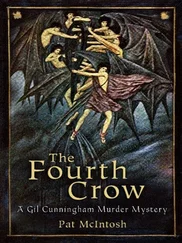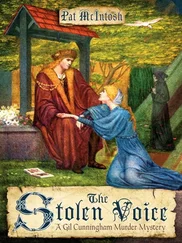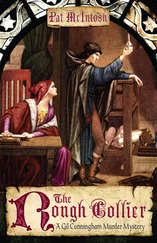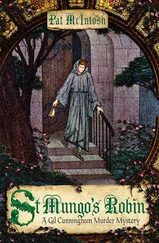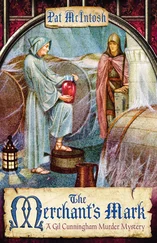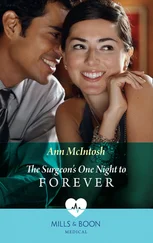Pat McIntosh - The Harper's Quine
Здесь есть возможность читать онлайн «Pat McIntosh - The Harper's Quine» весь текст электронной книги совершенно бесплатно (целиком полную версию без сокращений). В некоторых случаях можно слушать аудио, скачать через торрент в формате fb2 и присутствует краткое содержание. Жанр: Исторический детектив, на английском языке. Описание произведения, (предисловие) а так же отзывы посетителей доступны на портале библиотеки ЛибКат.
- Название:The Harper's Quine
- Автор:
- Жанр:
- Год:неизвестен
- ISBN:нет данных
- Рейтинг книги:5 / 5. Голосов: 1
-
Избранное:Добавить в избранное
- Отзывы:
-
Ваша оценка:
- 100
- 1
- 2
- 3
- 4
- 5
The Harper's Quine: краткое содержание, описание и аннотация
Предлагаем к чтению аннотацию, описание, краткое содержание или предисловие (зависит от того, что написал сам автор книги «The Harper's Quine»). Если вы не нашли необходимую информацию о книге — напишите в комментариях, мы постараемся отыскать её.
The Harper's Quine — читать онлайн бесплатно полную книгу (весь текст) целиком
Ниже представлен текст книги, разбитый по страницам. Система сохранения места последней прочитанной страницы, позволяет с удобством читать онлайн бесплатно книгу «The Harper's Quine», без необходимости каждый раз заново искать на чём Вы остановились. Поставьте закладку, и сможете в любой момент перейти на страницу, на которой закончили чтение.
Интервал:
Закладка:
‘Chust one thing, father. There iss people here who have not seen her. We should make it clear who it is we are burying.’
The Franciscan looked steadily at her for a moment, then bowed. She reached forward and tugged at the ribbons which tied the shroud at the crown of the unseen head, then folded back the linen to reveal the still face, softened now into the calm acceptance of the dead. Tenderly she smoothed at a lock of the dark hair with its dusting of silver threads.
‘There,’ she said, looking defiantly at John Sempill. ‘Now who else will say farewell to Bess Stewart?’
‘I will,’ he said, accepting the challenge. He stepped forward, and first made the Cross with his forefinger and then bent to leave a rather perfunctory kiss on the white brow. Ealasaidh, watching, smiled grimly as he turned back to his place.
‘Now you,’ she said to his cousin.
‘I can name her from here,’ said Philip Sempill, dismay in his tone.
‘Come and say farewell,’ she commanded. He would have objected, but John Sempill nudged him, and he came reluctantly to touch the corpse’s cheek with the back of his hand, then suddenly bent and kissed the cold lips. He turned away, his eyes glittering in the candlelight, and James Campbell stepped after him with a short and sonor ous prayer, the palm of his hand on the shrouded breastbone.
‘And you,’ said Ealasaidh to the two gallowglasses. They strode forward as one, to touch fearlessly, murmuring something in Ersche which sounded like a blessing, and turned away to move back down the chapel to their place.
Gil, from where he stood, had an excellent view of the way their faces changed. Astonishment was succeeded by staring fear, which gave way to horror. Turning his head to look where they did, Gil felt the hair stand up on his neck.
Out in the dim church, a white figure approached, gliding slowly between the pillars of the crossing, hazy and silent, its scale impossible to determine in the shadows. It came nearer, and paused. Others had seen it. Gil noticed the mason’s man Luke crossing his fingers against ill luck, and there were muttered exclamations of prayer or blessing. Then the figure moved, and spoke, and became human-sized.
‘Am I late? I’m so sorry.’
‘Euphemia!’ said John Sempill. ‘Come and say farewell to Bess, since we’re all laying hands on her.’
‘I hardly think that necessary; said Father Francis, regaining control of the situation. ‘Oremus …’
As the Latin words rolled over the corpse Euphemia moved gracefully through the screen gate into the chapel, her watchful Italian at her back. She had dearly failed to borrow a black mantle, for she was in full white mourning: a satin gown, without ornament, and a cloak fit for a Carmelite were garnished with an extensive veil of very fine gauze with spangles. Gil heard several people draw in their breath at the sight.
Under the strident keening of the women, as they followed the bier out into the kirkyard, the mason said quietly, ‘What do you make of that, maister lawyer?’
‘Interesting,’ said Gil. ‘That is five people who are either innocent or not affected by superstition.’
‘Would you have touched her, there before all the congregation? And run the risk of being accused of her death, if fresh blood appeared?’
‘I already have — and I know myself to be innocent.’ Gil eyed the back of John Sempill’s sandy head, visible beyond the shrouded form on the bier. ‘I am convinced that one is innocent too, at least in himself, though the Fury is equally convinced of his guilt.’
‘And she — the Fury — what is she screaming about now?’
‘It is an Ersche custom,’ Gil explained. ‘She and the others are addressing the dead, reproaching her for leaving us, probably listing all the people who will miss her. So I am told.’
‘It is a horrible noise. Has she mentioned the child?’
‘I would not know.’
‘No, but anyone who understands Ersche will,’ said the mason significantly. ‘Who are all these? I expected an empty church.’
Gil looked round again.
‘Two musicians at least. Neighbours. Serjeant Anderson — he’s worn that favour to a few funerals. A few others out of compliment to the harper, or to Sempill.’
The pallbearers, selected evenhandedly by Father Francis, halted before the open grave and lowered the bier. Sempill and his cousin stepped back immediately, glaring at the other two, and Euphemia Campbell moved forward to stand between them, leaning on John Sempill’s arm with a pretty solicitude as he glowered at the lutenist opposite him. The women fell silent, and four of the Franciscans took up the cords to lower Bess Stewart into her grave. Gil edged back from the sight.
‘I cannot bear the way they bend in the middle,’ he confessed in Maistre Pierre’s ear.
The mason turned a bright eye on him, but moved companionably to the edge of the group, saying, ‘There is a bite to eat after this at my house. You will come back, no? There may be something to be learned.’
‘I should be grateful.’ Gil looked over the heads. ‘But I think you have competition. Look yonder.’
James Campbell, in a pose comically mirroring the mason’s, was speaking low and sideways to the Official. Since Canon Cunningham’s attention was on Father Francis he received only a stiff nod in reply, but this seemed to satisfy him, for he moved casually off to speak to the Provost’s steward. Maistre Pierre said something inappropriate to the occasion, and set off in opposition as the singing ended and Father Francis pushed back his hood and turned to John Sempill with calm sympathy. At the grave’s foot, Philip Sempill stood, bare head bent, the light breeze ruffling his fair hair.
Gil remained where he was while the mason secured a word with both musicians and several neighbours. James Campbell seemed unaware of the situation until he sidled up to someone with whom the mason had already spoken. Gil was watching the resulting exchange with some amusement when his uncle spoke in his ear.
‘We may learn more in different courts.’
‘Yes, sir,’ he said gratefully, thinking, God, the old man’s quick on the uptake.
The Official sniffed. ‘Mint and feverfew. Flea repellent?’
‘It has other uses, I’m told,’ Gil said, annoyed to hear himself defensive.
‘Aye, well. Is there anything I should raise in particular?’
‘Money. Who is the better for her death.’
‘Cui Bono. Aye. I cannot think it Sempill.’
‘Not directly,’ Gil agreed, watching Father Francis decline politely. ‘I cast Maggie in there this morning to see what she could put up. Best not to see her if you see her, sir.’
‘I take your point.’ The Official, with another hard look at the borrowed gown and favour, moved away to condole with John Sempill. Gil found Serjeant Anderson approaching in his blue gown of office.
‘A sad business, Maister Cunningham; he said conventionally.
‘Aye, indeed,’ agreed Gil.
‘And I hear you’ve no put her killer to the horn yet.’
‘We only found her yesterday morning,’ said Gil. ‘I am working on it.’
‘Aye,’ said the serjeant. ‘No doubt. And is that right, that there’s a bairn?’
‘What makes you ask?’ countered Gil.
‘Girzie Murray yonder’s first man spoke the Ersche. She was telling me what the women were saying, when they were caterwauling there.’
‘And what were they saying?’
‘Oh, the likes of, Who will stroke the small harp, who will tune the big harp, who will comfort the man-child. All very poetic, though you’d not think it to hear it sung,’ said Serjeant Anderson trenchantly. ‘So it seems there’s a bairn.’
‘So what have we learned today?’ asked the mason, strolling up the High Street in the late afternoon sun.
Читать дальшеИнтервал:
Закладка:
Похожие книги на «The Harper's Quine»
Представляем Вашему вниманию похожие книги на «The Harper's Quine» списком для выбора. Мы отобрали схожую по названию и смыслу литературу в надежде предоставить читателям больше вариантов отыскать новые, интересные, ещё непрочитанные произведения.
Обсуждение, отзывы о книге «The Harper's Quine» и просто собственные мнения читателей. Оставьте ваши комментарии, напишите, что Вы думаете о произведении, его смысле или главных героях. Укажите что конкретно понравилось, а что нет, и почему Вы так считаете.


